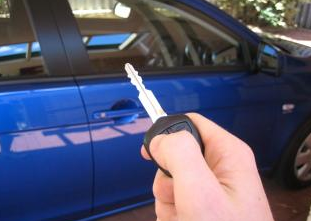4 Auto Maintenance Tips That Will Save You Money Down the Road
 Maintaining your car can be expensive, but some regular maintenance will cost much less than major repairs. Your vehicle was a substantial investment—so do what it takes to protect it. Here are four routine maintenance tips to save you money down the road.
Maintaining your car can be expensive, but some regular maintenance will cost much less than major repairs. Your vehicle was a substantial investment—so do what it takes to protect it. Here are four routine maintenance tips to save you money down the road.
1. Monitor Oil Levels
Hopefully, you already know how important it is to change your oil—your engine can’t run without it. Most cars need their oil changed around every 5000 miles, but newer cars are designed to go longer between oil changes (up to about 7,500 miles), but that doesn’t mean you can forget about it in between changes.
A common recommendation is to check your oil levels every other time you fill your car with gas. If your car runs out of oil and you keep driving, you will destroy your engine. It is a lot cheaper to refill your oil than to replace your engine. Don’t let a little negligence cost you hundreds of thousands of dollars.
2. Rotate Your Tires and Check the Alignment
Have your tires rotated approximately every 5000 miles. This allows them to wear evenly and extends the life of your tires.
Another way to preserve your tires is to check your vehicle’s alignment. This can usually be done when your tires are rotated or replaced. If you notice your car pulling or drifting to one side your alignment is probably off. This can damage the suspension and wear out your tires faster than normal. Replacing tires is expensive, so extending their lifespan will save you hundreds of dollars. On average, replacing your tires will usually cost you anywhere from 600 to 700 dollars.
3. Check Your Tire Pressure
The wrong tire pressure will negatively affect your car’s handling and braking. It can also wear out your tires faster and reduce your gas mileage. According to Consumer Reports, if tire pressure is 10psi below what it should be, it can make a 1 mile per gallon difference in fuel efficiency. A good rule of thumb is to check your tire pressure every few time you fill your vehicle up with gas.
When you check your tire pressure, just be sure to use the number in the vehicle owner’s manual, not the number listed on the sidewall of your tires. The number in the manual is calculated for optimum performance while the number on the sidewall is just the maximum pressure the tire can handle.
4. Have Your Car Inspected Regularly
Regular inspections are the best way to catch minor problems before they become bigger. For example, a working air filter keeps your engine clean by trapping dirt that would damage it. However if your air filters are dirty, it can decrease your fuel economy by up to 10%. Make sure to replace your air filters every so often to prevent your engine from overheating and causing any damage to your vehicle.
Mechanics, like those at Speedy Brake and Apollo Muffler, can check your filters, brakes, engine coolant, belts, hoses, exhaust, muffler, and transmission fluid to make sure your car is running smoothly and prepared for your next adventure.
A well-known quote from Benjamin Franklin says “An ounce of prevention is worth a pound of cure.” This applies often in life, and it definitely applies to car maintenance. Big repairs will cost more money and leave you without a vehicle while it is in the shop. Spending a little money today will save you time in the future and hundreds, or possibly thousands, of dollars during the life of your vehicle.
Category: Family Finances






I guess one should always get their car serviced well in time from best garages and mechanics near you, and Stick with them if you re satisfied with their services.